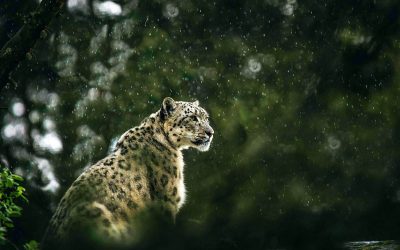IUCN unveiled a Global Standard providing the first-ever set of benchmarks for nature-based solutions to global challenges. The new IUCN Global Standard will help governments, business and civil society ensure the effectiveness of nature-based solutions and maximise their potential to help address climate change, biodiversity loss and other societal challenges on a global scale.
“The world is looking for durable and effective options to tackle global challenges such as climate change, food and water security, and now, economic recovery from the global pandemic. To this end, the new IUCN Global Standard for Nature-based Solutions is ideally placed to harness and accelerate the sustainable use of nature,” said IUCN’s Global Director for the Nature-based Solutions Group Stewart Maginnis. “For nature-based solutions to fulfil their potential, we must ensure that the actions put in place today bring about the desired benefits for society and biodiversity. This Global Standard offers a rigorous, consistent and accountable framework that will help avoid any misuse and take nature-based solutions from the local to global scale.”
The concept of nature-based solutions (NbS) – actions addressing key societal challenges through the protection, sustainable management and restoration of ecosystems, benefiting both biodiversity and human well-being – is increasingly being applied around the world. More than 130 countries have already included NbS actions – such as reforestation, green infrastructure, sustainable agriculture and aquaculture, or coastal protection – in their national climate plans under the Paris Agreement.
However, not all actions labelled as “nature-based solutions” provide the anticipated benefits to both society and biodiversity, and the global potential of NbS is far from being fully realised.
“Until now, there has been neither consensus nor coherent guidance on how to design and implement nature-based solution interventions that are capable of consistent delivery of benefits for people and nature,” said Angela Andrade, Chair of the IUCN Commission on Ecosystem Management, which helped lead the development of the Global Standard. “The contribution of the Commission, in addition to input from over 800 experts and practitioners from 100 countries, has been to guide the development of the IUCN Global Standard, ensuring that it is scientifically robust and applicable across a wide range of regions and scenarios.”
The IUCN Global Standard for Nature-based Solutions has eight criteria and associated indicators that allow the user to assess the aptness, scale, economic, environmental and social viability of an intervention; consider its possible trade-offs; ensure transparency and adaptive project management; and explore possible linkages to international targets and commitments. It consists of a user guide and self-assessment tool, which identifies areas for improving and learning.
Click here to download the IUCN Global Standard for Nature-based Solutions.
Source: IUCN



0 Comments